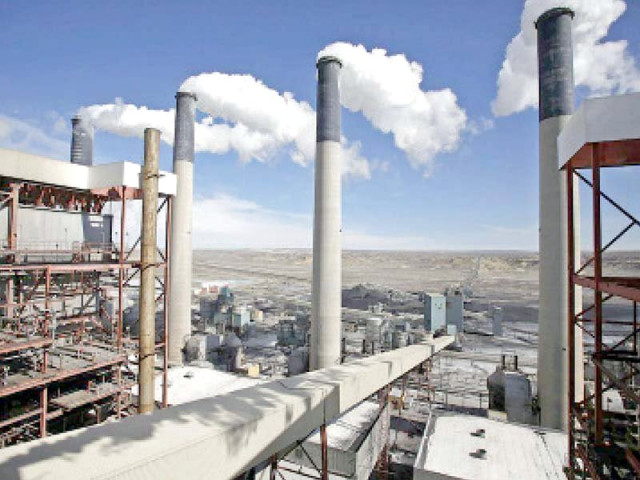OGRA slashes UFG charges
Move will lead to major reduction in prices for LNG consumers

In a landmark decision, the Oil and Gas Regulatory Authority (Ogra) on Wednesday decided to slash the unaccounted-for-gas (UFG) benchmark for liquefied natural gas (LNG) consumers, a move that would lead to a major reduction in prices.
UFG is defined as losses and leakages of gas in systems of gas distribution companies, which they charge from the consumers.
Earlier, Ogra had allowed 11-17% UFG recovery to the gas utilities on the distribution of LNG to the consumers. Now, Ogra has come to the knowledge that the Economic Coordination Committee (ECC) has taken a decision to charge actual UFG from LNG consumers.
Officials said that Ogra noted that the actual UFG was 6.3% that could be collected from domestic consumers using indigenous gas. Hence, this benchmark was set following a study conducted by a consultant.
The regulator decided that the actual UFG allowed to the gas utilities was 6.3% and they should charge the same from the LNG consumers.
Ogra notified the price of RLNG for Pakistan State Oil (PSO) at $5.8 per million British thermal units (mmbtu) and for Pakistan LNG Limited (PLL) at $5.64 per mmbtu for November 2020 based on the 6.3% UFG.
With the passage of time, gas production was going down and the country had to import LNG. The Pakistan Tehreek-e-Insaf (PTI) government diverted the expensive LNG towards domestic consumers during previous winter seasons, resulting in accumulation of a debt of Rs78 billion.
Now, the gas companies expect addition of a debt of Rs69 billion during the current winter season due to the consumption of LNG by domestic consumers.
Following the fresh decision of Ogra, LNG prices will not only come down for commercial and industrial consumers but the debt burden will also ease despite diversion of LNG towards domestic consumers.
Market sources were of the view that it was a good decision by the regulator as it would open new avenues of private investment in the LNG sector.
Owing to higher LNG prices and monopoly of public sector companies, the government had been facing problems by taking financial risks. It had been seeking provinces’ support for a weighted average gas price to reduce the prices. However, these efforts have not brought results so far.
The previous Pakistan Muslim League-Nawaz (PML-N) government had signed an expensive LNG deal with Qatar. Even the present government was striking spot LNG deals at higher rates than the Qatar deal. Due to higher LNG prices, the power sector had already refused to consume it.
Moreover, the Cabinet Committee on Energy also exempted the power sector from guaranteed LNG offtake.
At present, two gas price formulas are in place. The regulator decides on domestic gas prices every six months, however, it notifies the LNG price every month.
The PML-N government had also approved the review of LNG prices on a monthly basis because it treated the fuel as a petroleum product. To change that, the current government would have to amend the Ogra ordinance in order to treat the imported LNG as gas.
Later, Prime Minister Imran Khan held an energy conference, in line with recommendations of the Council of Common Interests (CCI), to persuade provinces to agree on a weighted average price formula. However, the provinces did not endorse the plan.
Officials said that the government should shift towards deregulation of LNG market in order to open it for the private sector. It will not only attract investment but will also reduce financial risk for the government.
The cabinet on Tuesday decided to end subsidies as they were a burden on the national exchequer.
The PTI government has already allowed the private sector to import LNG without involving government guarantees. However, the public sector companies still want to maintain their monopoly at the cost of higher prices for the consumers.
The involvement of private sector will create fiscal space for the government to end the subsidies. At present, textile and fertiliser sectors are using LNG at a discounted rate.
Published in The Express Tribune, November 12th, 2020.
Like Business on Facebook, follow @TribuneBiz on Twitter to stay informed and join in the conversation.



















COMMENTS
Comments are moderated and generally will be posted if they are on-topic and not abusive.
For more information, please see our Comments FAQ